Date: 24th November 10am-1pm
Location: Zichy Palais, Ventúrska 9, Bratislava
With this closing event, the one-year artistic education and research project Year of Climate Care/ Rok pre klímu comes to an end. With the belief that climate change is a cultural change, we want to combine past experiences and collaborations into a strategic look into the future and discuss the potential of culture as a driver of social transformation.
The focus of the debate will be on the creation of new alliances to foster sustainable, innovative urban transformation and promote climate care actions in Slovakia. Join the discussion about new unorthodox partners to shift norms on a large scale and how important creative actors are by mapping things in a new way and finding fresh solutions to the pressing challenges of our times.
Background
In an ever-changing world we are facing huge transformative forces. And yet the biggest challenge is the rapid transformation of our climate ecology. Climate change is disrupting the lives of communities across the globe, dramatically limiting their ability to access and benefit from their culture. While some of the effects of a changing ecosystem are tangible and can be felt in our daily lives, others remain abstract and distant due to the sheer global dimension and complexity of climate change. And this might feel overwhelming and sometimes even trigger regressive reactions. But it doesn’t change the fact that we need to change our life towards sustainable models and modes of living as fast as possible.
The necessity of change and the necessity for new societal protocols, rituals and processes is not only executed on a political level, but more so on the level of cultural and aesthetic practices. Why is that? Culture’s ability to translate from abstract to tangible, from a global transformation into local realities, from the technical and infrastructural dimension into a cultural and creative movement/ to communities and from data into emotion is unique. It helps us to understand what we are facing and how we can find individual and collective solutions. Inviting the cultural perspective into the debate is important not only because the loss and damage caused by climate change extends to cultural factors, “including direct material losses as well as losses of mobility, displacement, loss of territory, loss of cultural heritage, or loss of local knowledge and language elements, among others.”
Inviting the cultural perspective into the debate is also important because society's response to every dimension of global climate change is mediated by culture. In order to make the potential of the cultural sector usable and to counter climate change in a strong alliance, local communities, citizens and common people need to be acknowledged as a driving force for climate care and climate action. At the same time we need to create new strategic alliances across disciplines, hierarchies, stakeholders and generations as building blocks for change. Policy-makers, common people, creatives, educators, researchers and business need to strengthen their collaboration for a sustainable future development.
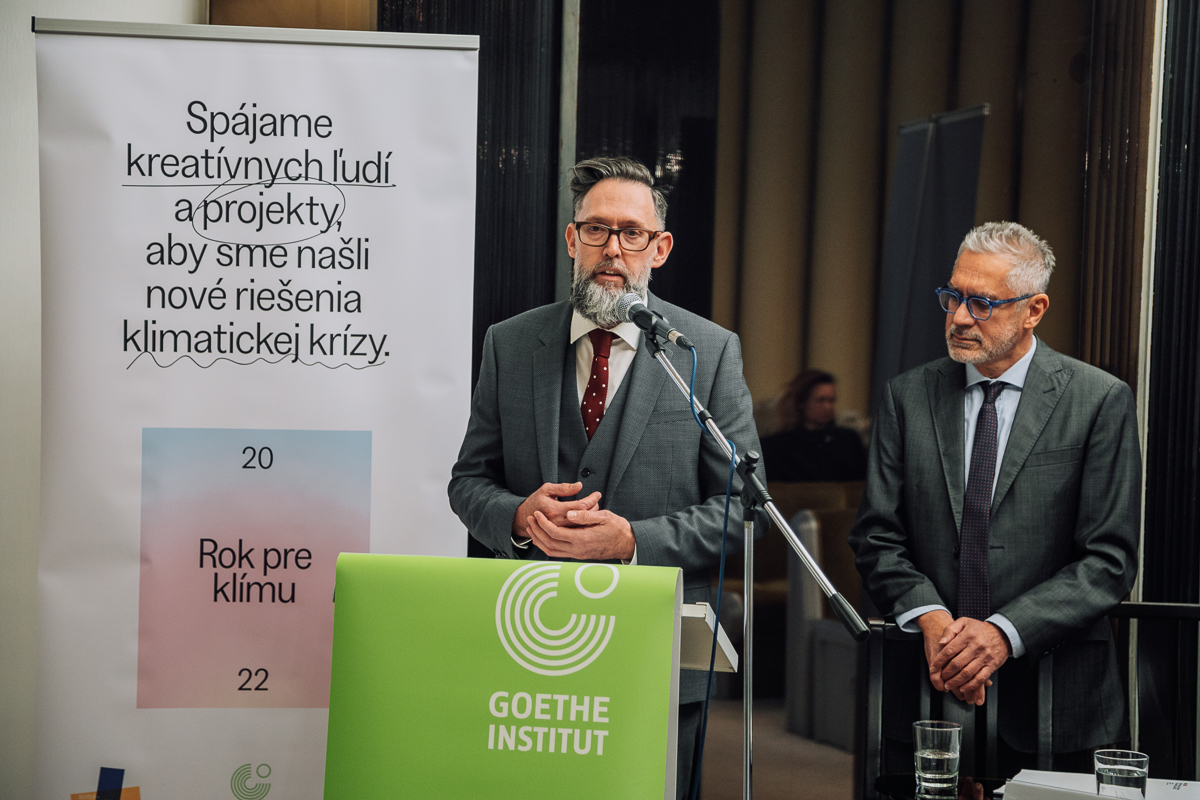 Markus Huber (Goethe-Institut), Jean-Marc Cassam Chenai (Institut Francais) welcomed the participants
Markus Huber (Goethe-Institut), Jean-Marc Cassam Chenai (Institut Francais) welcomed the participants
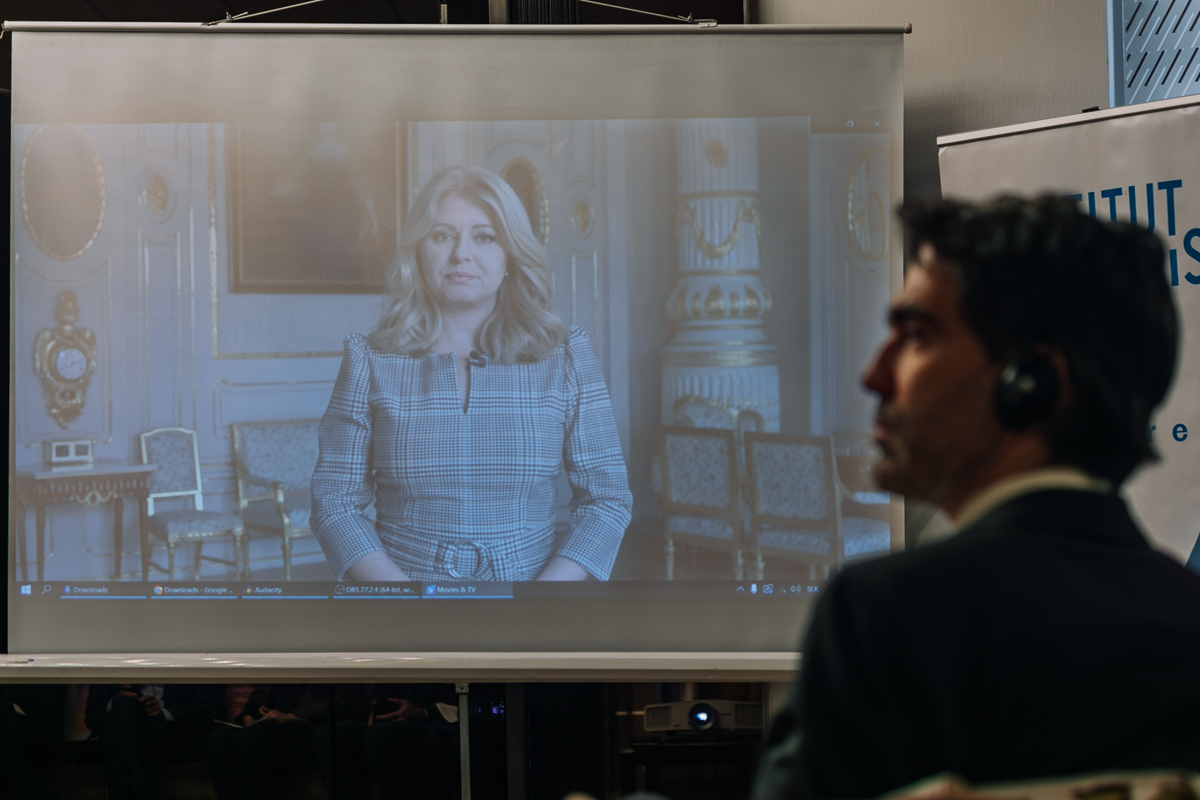 Followed the inspirational input by President Zuzana Čaputová
Followed the inspirational input by President Zuzana Čaputová
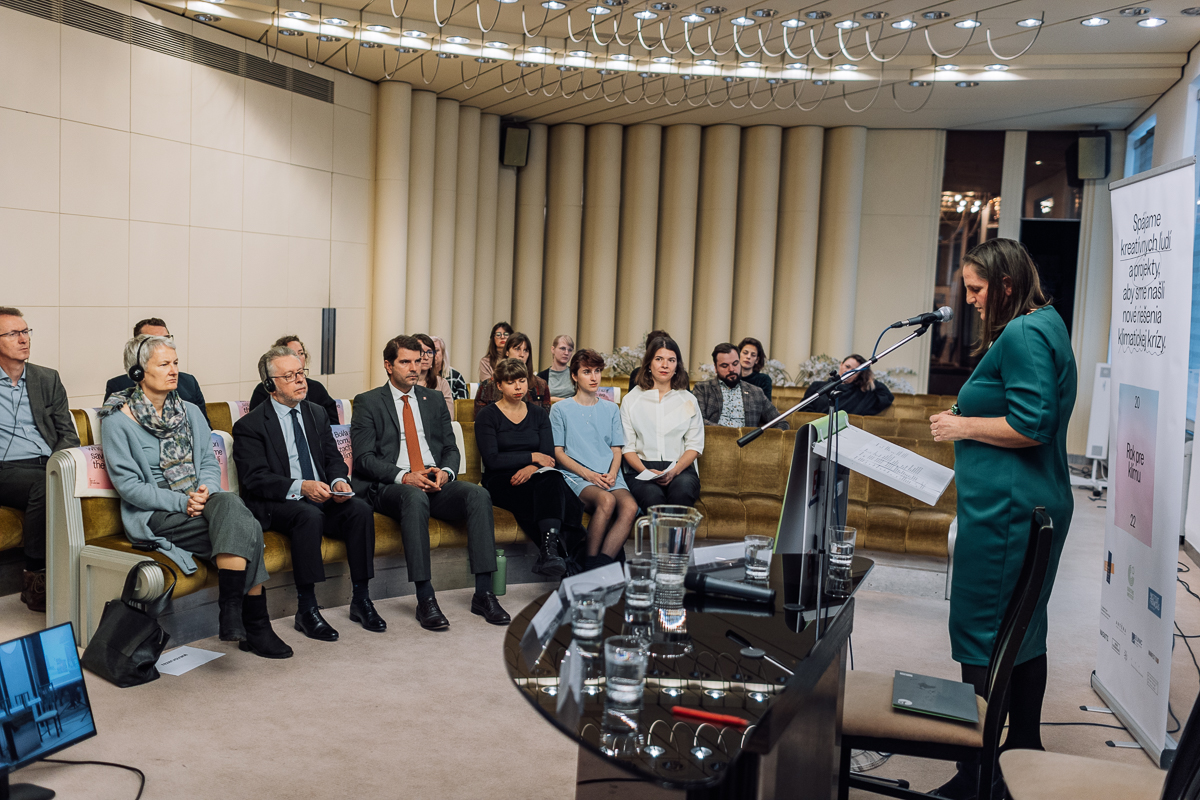 Maria Beňačková Rišková (YCC / NEB / CCI cultural strategy Slovakia)
Maria Beňačková Rišková (YCC / NEB / CCI cultural strategy Slovakia)
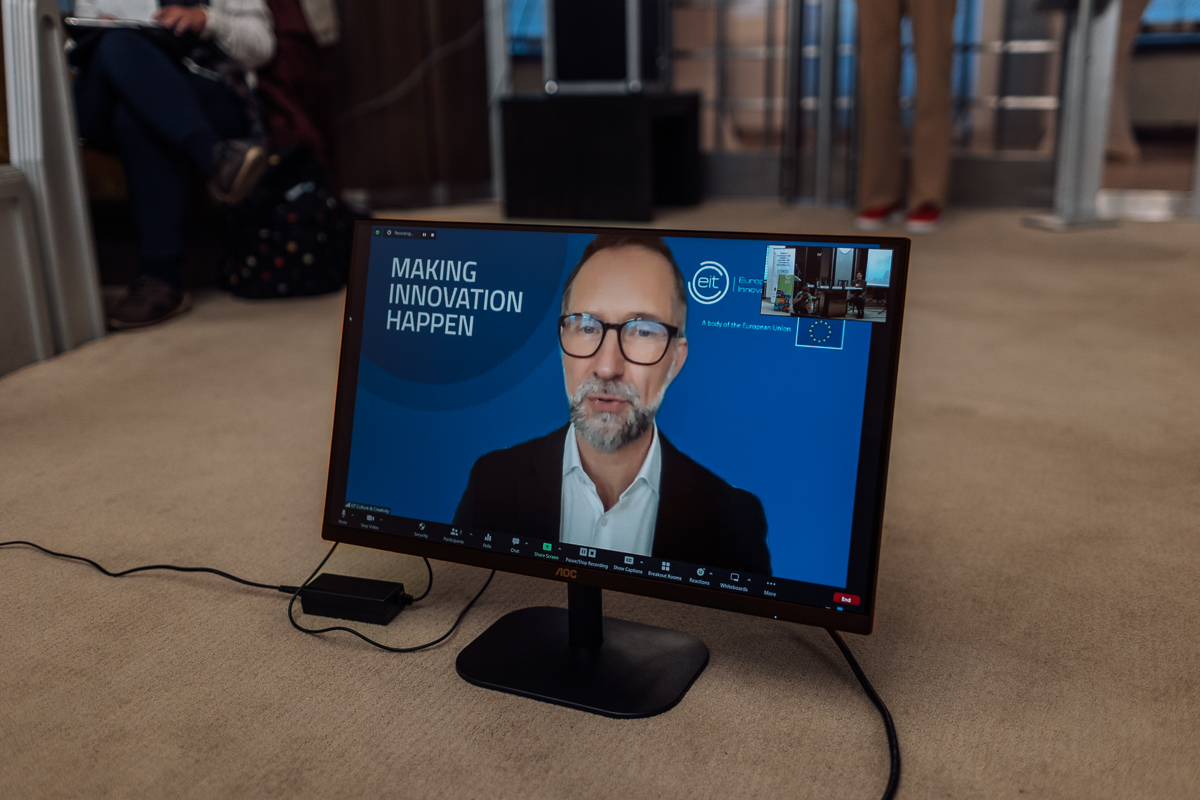 Bernd Fesel (EIT Culture & Creativity)
Bernd Fesel (EIT Culture & Creativity)
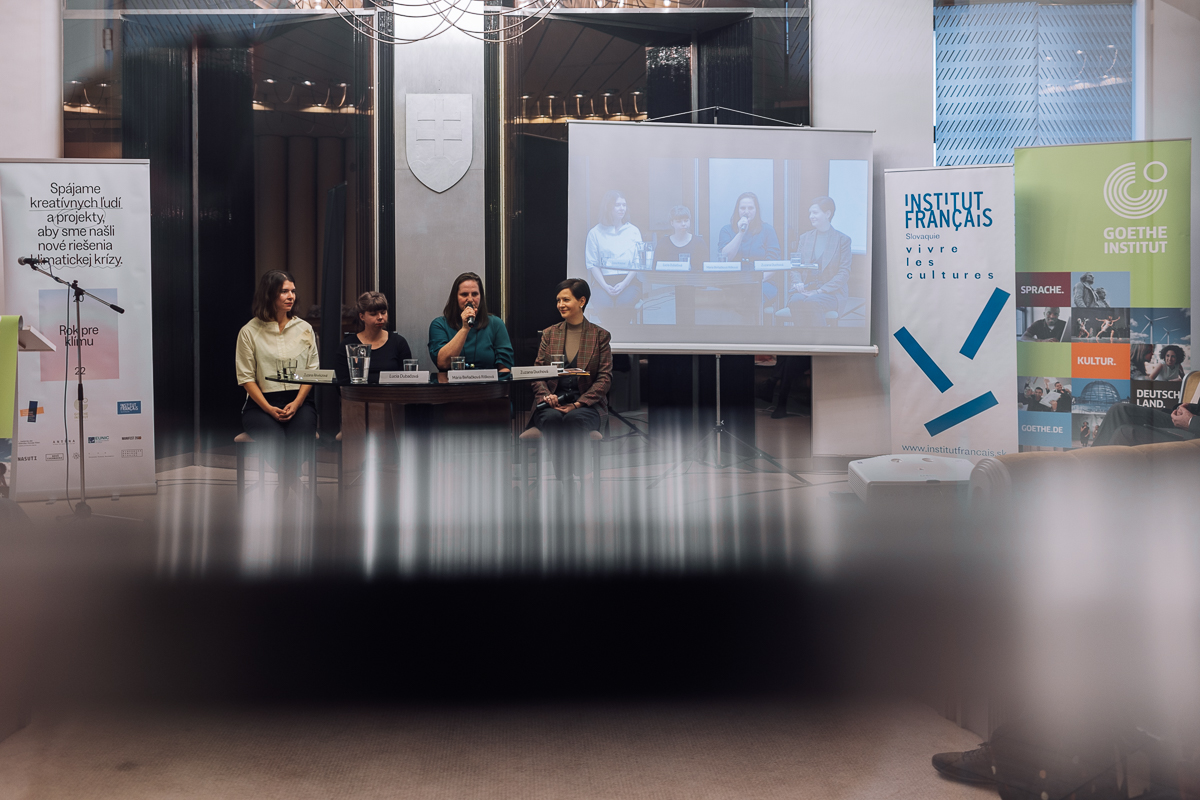 Debate: Zuzana Révészová (Spolka), Lucia Dubačová (Trenčín ECoC 2026), Maria Beňačková Rišková (YCC / NEB / CCI cultural strategy Slovakia), hosted by Zuzana Duchová (CED Slovakia / NASUTI)
Debate: Zuzana Révészová (Spolka), Lucia Dubačová (Trenčín ECoC 2026), Maria Beňačková Rišková (YCC / NEB / CCI cultural strategy Slovakia), hosted by Zuzana Duchová (CED Slovakia / NASUTI)
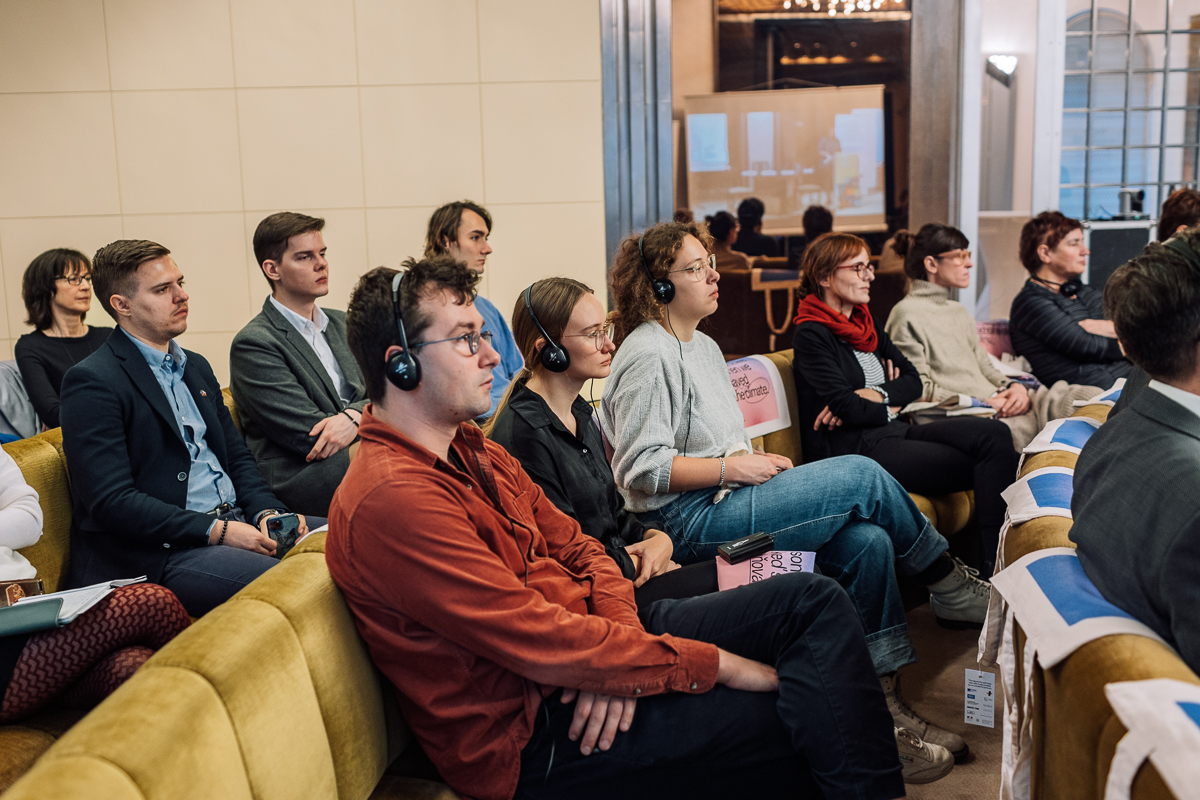
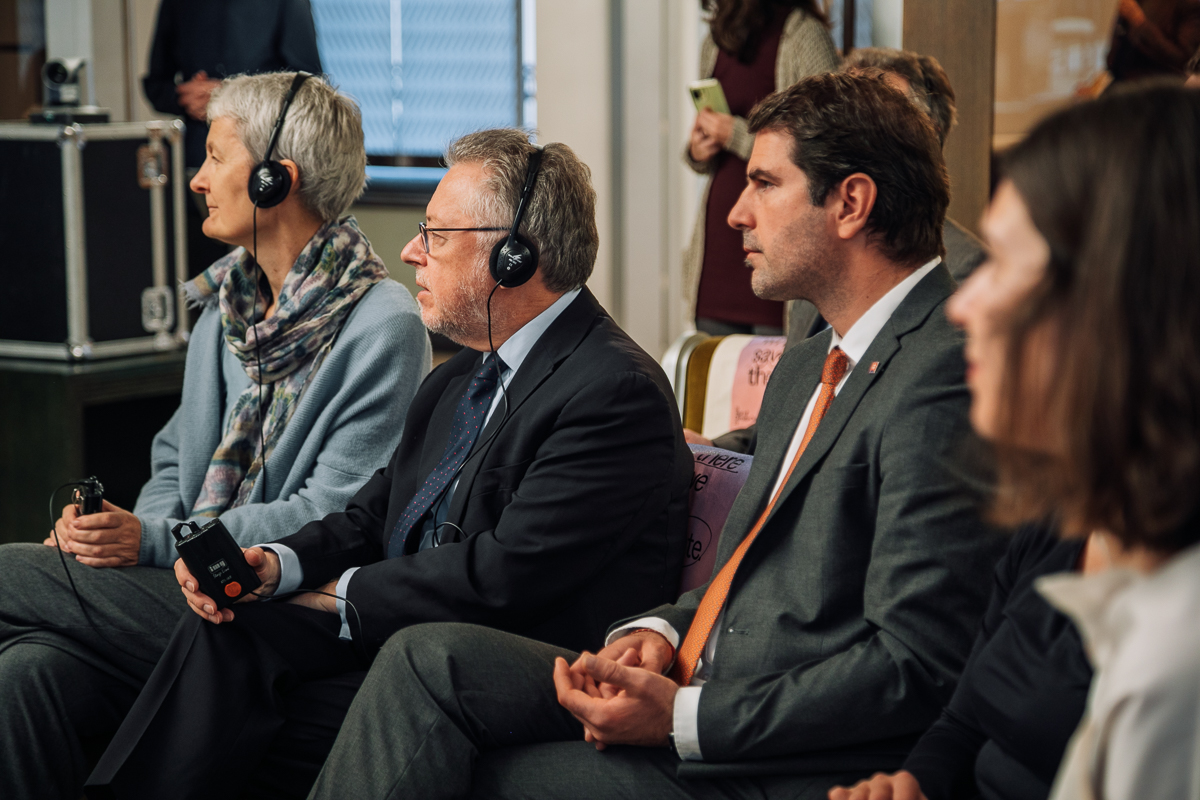
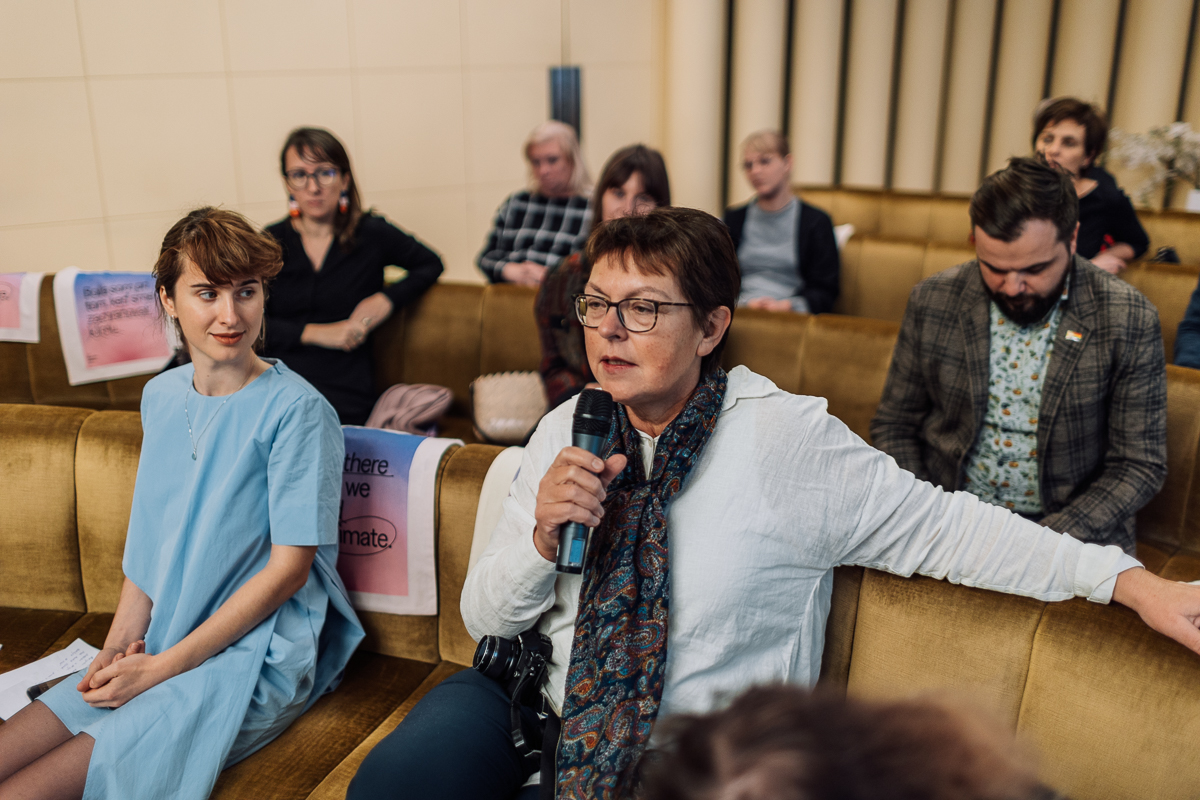
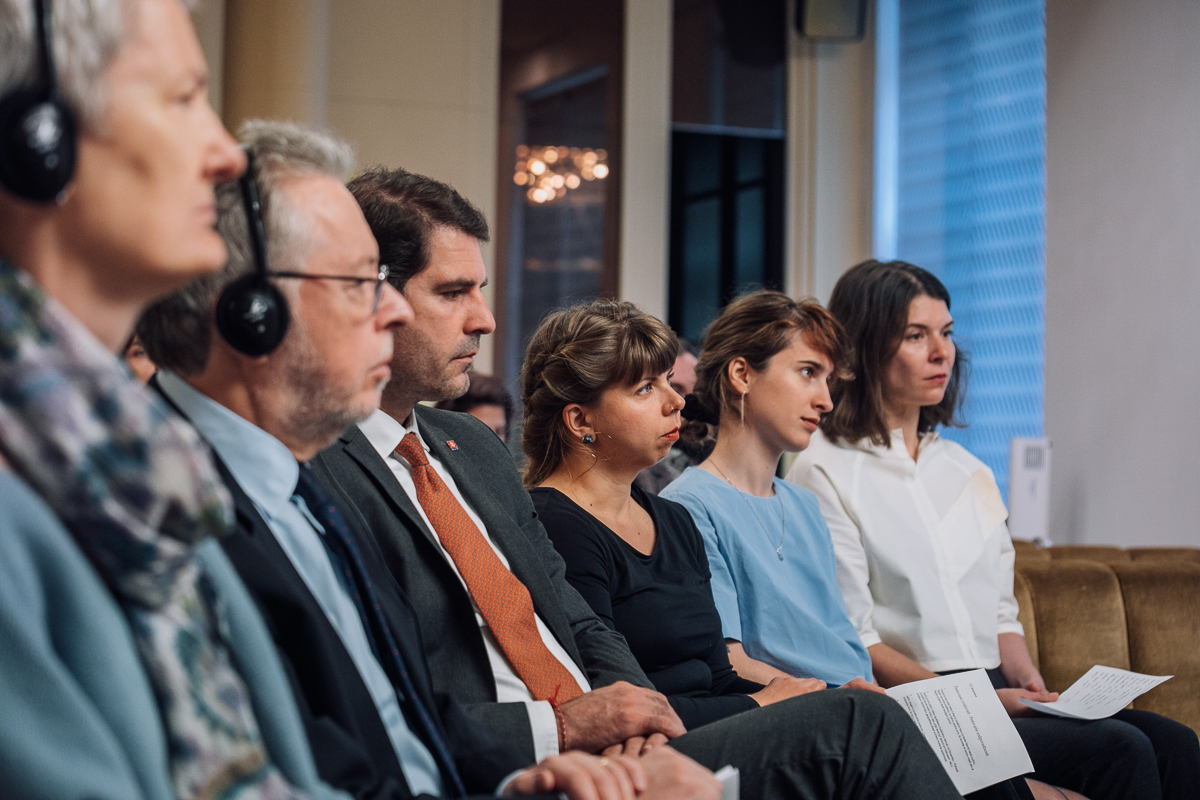
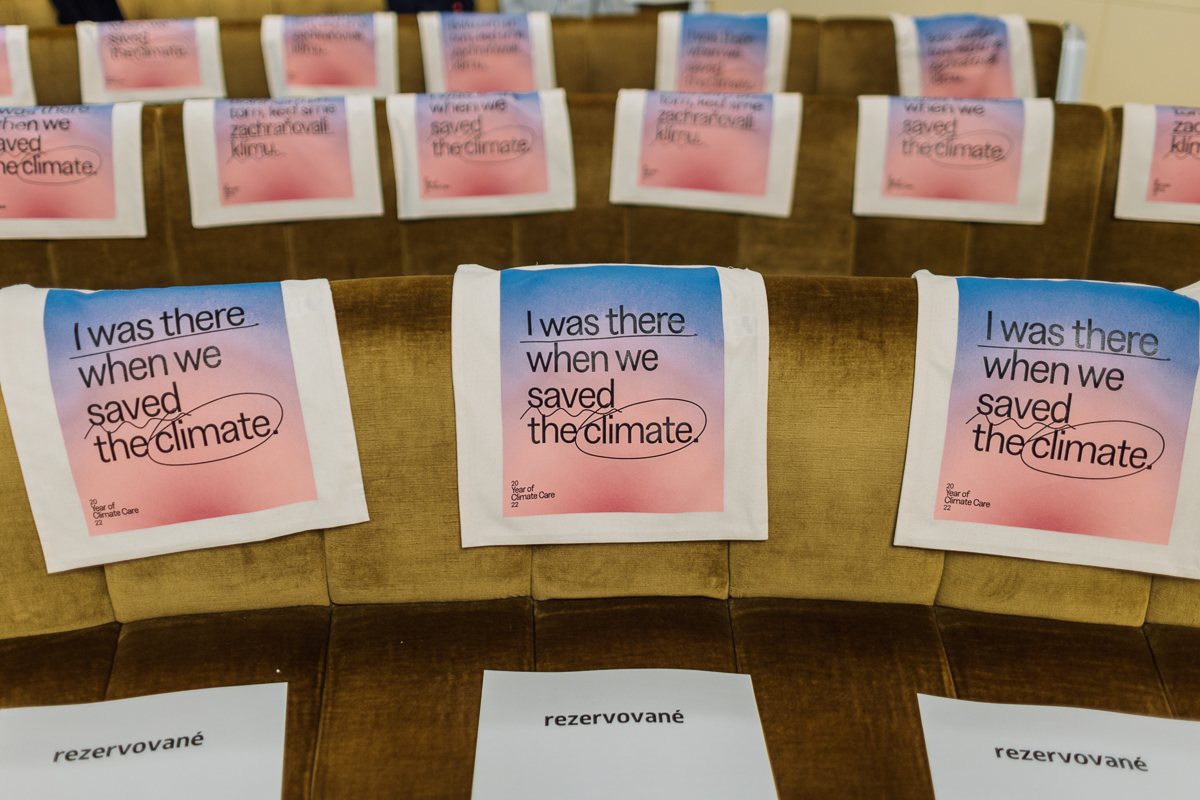 Photo: Marek Jančúch
Photo: Marek Jančúch
Published December 10th, 2022